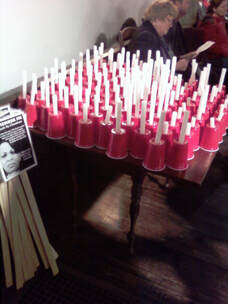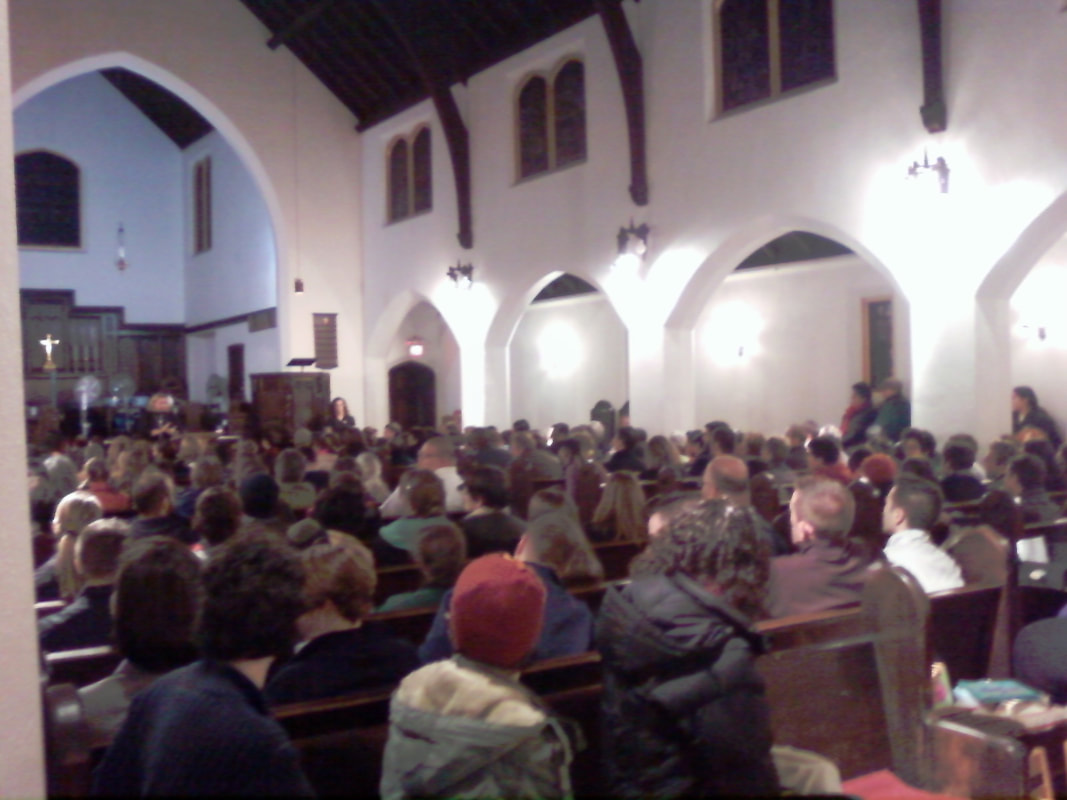For those of us in the trans community, this is a liminal time in another way—a time when we actively remember and face the ongoing reality of our vulnerability to violence and death, particularly for trans women of color. And it is a time when we seek to galvanize ourselves and our allies, to take our horror, grief, and outrage and harness it for change. To that end, this Saturday, November 20th, marks the 11th annual, International Transgender Day of Remembrance (TDOR).
Brief History
As it so happens, TDOR started with a local murder here in Boston. On November 28, 1998 Rita Hester was found dead, having been stabbed multiple times by an assailant who has never been identified. In the days following her murder, a vigil was held down the street from my former parish, St. Luke’s and St. Margaret’s in Allston, MA, where Rita lived. Across the country, San Francisco activist Gwen Smith then started the Remembering Our Dead website, which began keeping track of trans people around the world who had died due to transphobic violence (that work is now carried on by Ethan St. Pierre at this site). Gwen also organized a vigil in San Francisco in 1999 that inspired similar events around the world. The most common date for holding TDOR, November 20th, marks the death of another Boston trans woman, Chanelle Pickett, who had been murdered on that date in 1995. TDORs now happen around the globe, and in some cases expand to include educational events. Here in Massachusetts, this is Trans Awareness Week, with multiple activities happening across the state.
What Your Congregation Can Do This Week
* go to a TDOR in your community. Listen, support, be present as an ally
* host a TDOR in your community—more and more churches are opening their doors in this way, though the events themselves are not usually religious services. Indeed, it is important to be sensitive to the fact that many members of the trans community feel deeply alienated from religious traditions and communities. Simply opening your door, making space for the trans community to come together and organize its own event, is incredibly powerful. More and more Episcopal parishes and cathedrals are hosting these events-- here in Boston, for instance, TDOR will be hosted by the Crossing and the Cathedral Church of St. Paul this Saturday at 6pm). In Sacramento, California, Trinity Episcopal Cathedral (@ 27th & Capitol) will be hosting the city's TDOR with a candlelight vigil at 6:30 p.m.
* Host another event in trans week (or at another time of the year), like an open mic night, or a film viewing, again, making sure that it is organized by the local trans community.
* Consider making a special space in your service this Sunday to honor the trans community. Perhaps in your Prayers of the People, for instance, you might name those who have died this past year and/or compose a special collect; perhaps you might mention this event in a sermon—be creative, open and compassionate (and if you’re willing to then share what you did and how it went, it would be great to include such vignettes in future blog posts).
* However and whenever you are able, please pray for the trans community. Pray for our strength and stamina in this newly challenging political climate, as we continue to fight for basic nondiscrimination and anti-violence legislation, as we strive for equal access to health care, as we make our way in all sorts of vocations, families, and faith communities.
- The Rev'd Dr. Cameron Partridge



 RSS Feed
RSS Feed